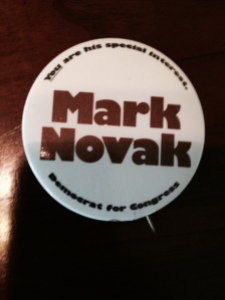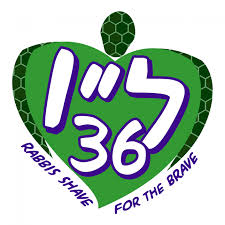We jumped into the fire, but many of us feel fortunate like we have come out relatively unscathed. Or at least that’s how it might appear at first.
I worry that we have forgotten, in the course of escaping these ever spreading flames, that just a short while ago our entire community experienced two other intense events: the mass shooting at the Borderline Bar and Grill, a country-western bar frequented by college students in Thousand Oaks, CA and the mass shooting at Tree of Life Synagogue in Pittsburgh.
Our community has faced three major traumatic events coming at us in just a two week period. How do we process these fires, and the flames of hatred, directed at us?
I want to tell you a story, a true story, about trauma. My trauma. I share my personal story with you because I want to help us all, as we all face the fallout from these three traumatic events.
Seeking Advice to Understand How to Respond
Since last Wednesday, after the mass shootings, as the fires began to rage across the Conejo Valley, Rabbi Julia Weisz and I got in touch with our rabbinic colleagues from communities in Santa Rosa, CA which was decimated by fires a year ago, Houston, TX which endured horrible floods, and Parkland, FL which faced a murderous mass shooter in the high school. We called them because we needed to understand what we might expect and what we might do to help heal our community.
Most of us do understand that the process of repair for those who lost houses or were wounded or had loved ones murdered is long and arduous. But Rabbis Stephanie Kramer, Oren Hayon, and Marci Bloch who guided us well also cautioned us that our experience does not end when we return to our homes, find new homes, or when the dead are buried. They taught us that the process of healing would also be long and arduous for all of us. We will need to come to terms with the fact that these fires – and increased mass shootings – are now the new normal. They are going to happen, again and again, and they are going to get worse before they get better. Repair of our broken hearts and broken world takes time.
Recognizing our Trauma
We need to recognize our trauma. My rabbinic colleagues told us that those who survive, those who evacuated, even returned to their houses and saw how close the fires came – sometimes all the way up to backyards – or those who saw their friends’ homes burnt down, also will face trauma. Meaning most of us.
The story that I want to tell you tonight is about my day one week after the fires began. I want to open your eyes to what can happen. I have done advanced pastoral counseling work, studied about the traumatic effects of such experiences, and was warned by all those rabbis who told me what was going to happen to many of you. Well, it happened to me too.
One week after the fires began, I had to take a day off. Because after dealing with these events 24/7 for a week, I hit the wall. I am not sharing this for sympathy or caring: I’m good and with continued support from my team, I will be even stronger.
As the Tears Began to Flow.. And Not Stop
My story began at about six o’clock, when I began crying. I was talking to my kids about what was going on with the fires and our work to be there for our community. Sitting safely in my home, far enough away from the fires to be assuredly safe, I recounted our work organizing the community. And the tears began to flow. Initially I figured I was just exhausted.
But then I woke in the middle of the night and while watching an episode of the TV show Parenthood – about a dad who couldn’t find time for himself, but finally broke away and went surfing – and all of a sudden I found myself bawling again. At four thirty in the morning.
That morning I participated in an early conference call but had to break away numerous times because I kept shedding tears.
Calling my Therapist
My very next call was to my therapist, who I see sometimes a lot, sometimes a little. He opened up an appointment for me at 5:00 pm. I then texted Sally Weber, a social worker and friend from Jewish Family Services, who earlier in the week “kidnapped me” from the relief work to encourage me begin to process. She could talk at two thirty.
Then I contacted the Central Conference of American Rabbis, to get in touch with Rabbi Rex Perlmeter, the CCAR’s crisis counselor, who said he would call me back in twenty minutes.
Rex and I talked for an hour. Sally and I spoke for an hour. My therapist and I spent an hour together. And you know what I discovered in those three hours of therapy? That although I thought I was not directly touched by any of this, I actually was traumatized by all that has happened. It was partly exhaustion, but not just that.
Shaken Up by the Shootings
What I discovered was the intense effect on me, especially of these double shootings. I was experiencing the shootings as deeply personal attacks. First they came after us at a synagogue (I’m Jewish. I work in a synagogue. It could easily have been my synagogue.). And then, over at the Borderline Bar, that country western dance bar, one of our young people, 23 year old dear to me, had been in there dancing and ran for his life. I’m glad that he is physically unharmed. Yet, just five days earlier I had been sitting with him, commiserating over the synagogue shooting and all those shootings at churches, schools, concerts, malls, and elsewhere. I cautioned him that as terrible as it is, it’s going to get worse before it gets better. I assured him though that the chances of his getting shot at is about as likely as his stepping off the curb and getting hit by a bus (I buried someone from that only once, very early in my rabbinate). Then just five days later, that young man was in the Borderline Bar shooting.
In those counseling sessions, I realized that I didn’t know how to keep my kids safe, or my congregant kids safe, or my congregation safe, or the school safe. I discovered that was frustrated and so sad. I realized that I couldn’t sit back anymore.
Survivor’s Guilt
And then I realized that I had a form of survivor’s guilt. I was feeling guilty that we were here in this gorgeous part of the country and while many were evacuated, most escaped with only smoke damage to their homes. Yes, in fact, the fires raged all the way up to peoples’ homes, workplaces, and backyards, but I and most of our congregants were safe.
As we dug deeper, the counselors helped me discover the intensity of the repetitious nature of these fires. What now was happening to people I love had happened in nearby Ventura, CA a year ago, and to a lesser degree, we faced fires two years ago in Calabasas. In fact back then, I rescued our two Torah scrolls from the approaching fires, carrying them across the freeway bridge to safety. Since then we post in the synagogue lists of items to take if we are evacuated.
Personal Sense of Loss
Amidst my tears, I also remembered that of the three Jewish camps destroyed, I had personal connections to each. I had been a director of Camp Hess Kramer and Gindling Hilltop Camp for four years. It was so long ago, I forget about it. And most of our temple teens go to Camp JCA Shalom for NFTY retreats. These camps are their home away from home. They were part of my life.
Then I realized that just one year ago, our Camp Newman in Santa Rosa, where our family spent every summer for twenty years, had burned down. My therapy team helped me realize that I had trauma on top of trauma, compounded trauma.
And then I became aware of the self-growth I needed to undertake: that if I really wanted to do something to stop these annual fires from happening, and if I want to do something to stop these constant shootings, we all have to stand up. And I had to become a leader in a different way than I had been before. That’s is intense and a little bit scary too.
If it Could Happen to Me, It Could Happen to You Too
Finally, I learned that if I can become overwhelmed and traumatized by this, then, they tell me, it can happen to you too. Remember, I am trained to handle this and I train interns every year about just these types of situations. If it could happen to me, it can happen to you.
So even when you go back to your house and at first all seems fine, take your pulse. If you can’t sleep as well as you used to (or as well as you used to not sleep), or if you can’t relax, or if your child’s grades start to change, or if you witness significant behavioral changes in the kids or the adults or yourself, or if something else seems off, please call Rabbi Julia, call Cantor Doug, call me, or call the Jewish Federation crisis hotline, or call Jewish Family Services, or call a therapist, or call a friend. Because you too might be dealing with intense trauma or PTSD.
I was lucky; because of my training I quickly could tell that something was wrong. And I quickly reached out for help. But I’m not over it.
To remain in track, I have given control over my eating over to my wife Michelle; I said I would eat whatever she tell me to eat. I would go to sleep whenever she told me to go to bed. I have arranged with trusted friends who know me well to check in regularly.
And I have additional counseling appointments scheduled.
I’m Going to Be Okay… Are You?
So I’m okay, because I did and am doing the therapy work. But many of us may have to do it too. It’s not over when we are back in our homes. The fires are not over. These insidious shootings are not over. We are going to have to deal with the trauma from them and come to terms with the new normal. Because this new normal is insidious and can easily overwhelm.
Each week we light Shabbat candles, and we take the same element, the fire that destroyed, and use it to create light and hope, for today and for the future. We are going to light Shabbat candles to bring in Shabbat light so that we can do what we did this whole horrible week since the shooting happened and the fires started: Kindle more light, not of destruction, but of love, hope, and healing. Amen.
—
Rabbi Paul Kipnes serves Congregation Or Ami in Calabasas, CA. This blog was originally posted on paulkipnes.com













